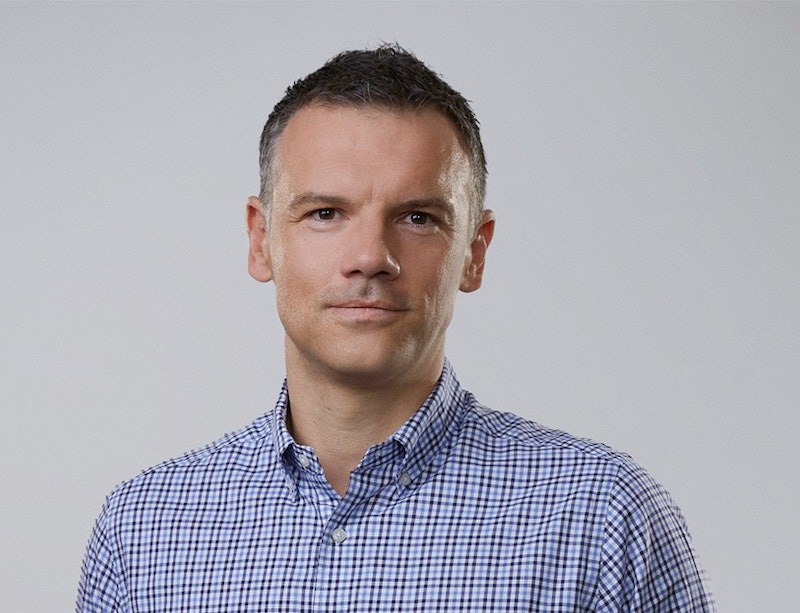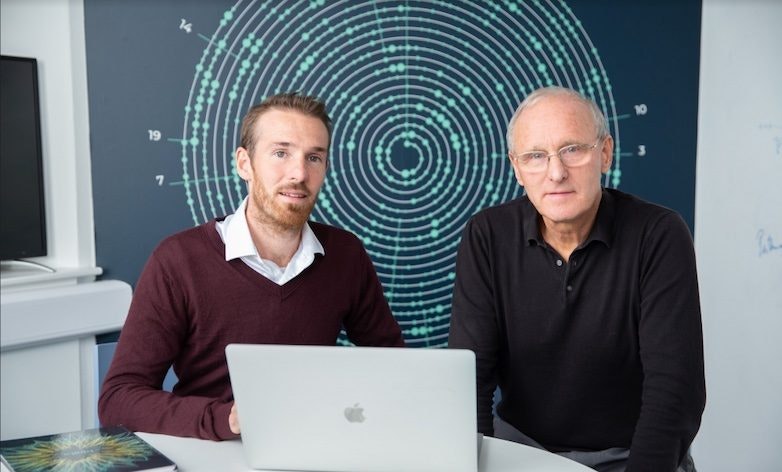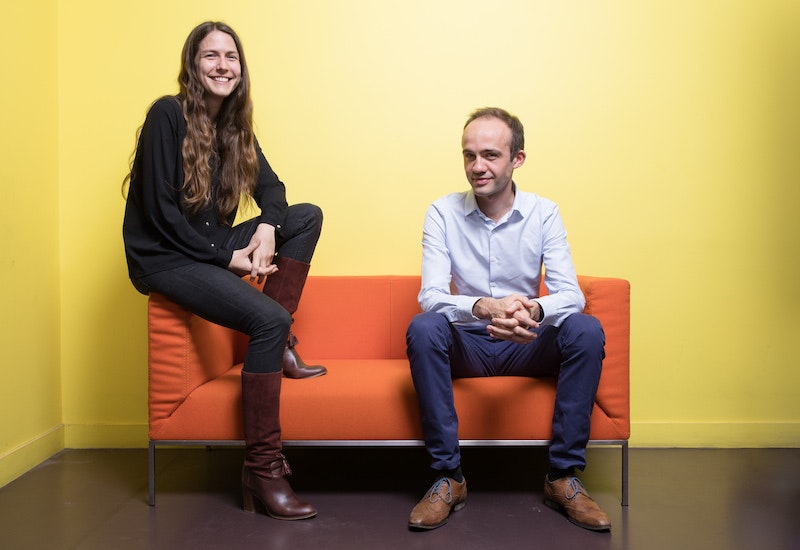Drug discovery is a painstakingly long and costly process. It can take pharma companies up to three years just to select potential drug candidates — and that’s before animal tests even start. 90% of treatments that then make it to clinical trials in humans fail before they hit the market.
Enter AI. Ten years ago, scientists saw an opportunity to harness data and computing power to predict which candidates were most likely to treat a target disease. They hoped that the approach could shave years off the drug discovery process and increase the success rate of clinical trials.
Investors and big pharma have poured money into making this a reality. European companies applying AI to medical research have raised a total of $2bn in the past 10 years, according to data from Dealroom. Earlier this year, French pharma giant Sanofi signed a massive deal worth up to $5.2bn with AI company Exscientia.
“There is now real acceptance. In the next few years all drugs will be discovered this way,” says Exscientia founder and CEO Andrew Hopkins. UK-based Exscientia — founded in 2012 — was the first AI drug discovery company. Its $510m IPO last year was one of the biggest ever in the biotech industry.
There are 23 AI-driven drug candidates in clinical trials as of August 2022, according to a recent study. However, none of them have yet made it to the market. So how close are AI drug discovery companies in Europe from delivering on their promise?
Making it through clinical trials
Before a drug can be sold on the market, it needs to go through a long process of preclinical testing followed by a series of clinical trials in humans that determine if it is safe and effective. The whole process can take 10 to 15 years and cost billions of dollars — and still most of the candidates fail before reaching the market.
The first drug discovered with AI to enter clinical trials was found by Exscientia through a collaboration with its Japanese pharma partner Sumitomo Dainippon. The drug started clinical testing in 2020 as a treatment for obsessive-compulsive disorder (OCD), but the study failed and its development was discontinued a year later.
Hopkins declined to comment on these results as Exscientia's deal with Sumitomo only included the design of the drug and his company hasn't been involved in that clinical trial. The Japanese pharma is currently running a phase 1 trial for an Alzheimer’s treatment with another drug that Exscientia identified.
Some pioneers like Exscientia and BenevolentAI — founded a year after Exscientia, also in the UK — already have results from early clinical trials showing that their drug candidates are safe for humans. But the technology is yet to prove that the drugs are also effective at treating patients.
“The jury is still out,” says Pierre Socha, partner at VC firm Amadeus Capital.

The next big milestone will be seeing late-stage clinical results for these drugs, he says. “Once we can reliably see results at scale and in a cost-effective manner, we will know whether AI is going to become one of the main tools for drug discovery.”
We will soon start seeing the first efficacy results from clinical trials, and Socha believes we could have an answer to whether the technology can deliver on its promise by 2026.
Beyond drug discovery
While we wait for trial results, Socha notes that AI is already impacting drug discovery in many other ways. The technology is seeping through the whole drug development pipeline.
For example, UK startup Ori Biotech uses AI to improve efficiency in the manufacturing of cell and gene therapies, which is currently a huge bottleneck in the pharma supply chain. The company raised $100m in a Series B round in January backed by Amadeus and Octopus Ventures among other investors.
Artificial intelligence can also enable precision medicine by identifying which patients are most likely to benefit from a specific treatment. French unicorn Owkin is one of the leaders in this space.
Exscientia has proven in a recent clinical trial that AI-assisted precision medicine can improve outcomes for cancer patients that had relapsed after at least two previous treatments. The company can look at individual cells from a patient’s sample to find the best drug for them.
“It’s the first time an AI system has shown to improve clinical outcomes in oncology,” Hopkins tells Sifted.
Can pharma truly embrace AI?
So far most AI drug discovery companies are university spinouts and startups. But for it to really make an impact, incumbent pharma companies will have to embrace the tech too.
Pharma companies have started integrating AI into their own drug discovery pipelines. However, they've been much slower to do so — none have entered clinical trials yet with drugs discovered using AI.
The problem with pharma companies is that they are applying AI to individual steps of existing drug development methods when it’s the whole process that needs to change, says David Brown, chair of AI startup Healx.
Brown has 50 years of experience in drug discovery and has worked for four of the top pharma companies. During his time at Pfizer he was involved in the development of Viagra — the drug was originally intended to treat heart problems but it was its side effects that made it a blockbuster.
This inspired him to found Healx. Based in Cambridge, the startup uses AI to sort through drugs that are already safe for humans and repurpose them as treatments for rare diseases. BenevolentAI used a similar approach two years ago to identify a rheumatoid arthritis drug that could also treat Covid-19.

He says one of the main reasons that drug discovery fails is human bias when selecting drug targets. For example, a scientist might select a candidate just because they’ve worked in that specific area before. Healx aims to remove this bias by entrusting the selection of both drugs and their targets to machine learning algorithms. The startup is currently running a clinical trial treating children with Fragile X syndrome, a genetic condition that causes intellectual disabilities.
Ultimately, Brown believes that pharma companies need to reengineer their whole processes in order to keep up with fast technology developments in AI.
“A small company of up to 5,000 people could do what AstraZeneca [which has 76k employees] is doing now,” says Brown. “We need to start increasing efficiency and go back to the growth rates of the past.”
What’s next?
The market for AI drug discovery keeps growing, and as big pharma signs deals worth billions in this space, new companies are joining the ranks.
One of those new contenders is Aqemia, a Parisian startup that recently raised €30m in a Series A round led by Bpifrance and Eurazeo. Maximilien Levesque, cofounder and CEO, says his team is developing new AI that can massively increase the speed at which promising drug candidates are found using quantum physics.
“We can virtually test half a billion new compounds every day with the same precision as the most precise method in the market — that is 10k times faster at the same computing cost,” Levesque tells Sifted.

Aqemia uses quantum physics algorithms to sort through millions of compounds and find the ones that can best interact with the desired target. While others use “brute force” approaches to test each compound, the company is able to predict interactions by solving a quantum physics equation that nobody else knows how to solve, says Levesque.
The company already has a dozen internal drug discovery projects, mainly targeting cancer, and has partnered with big pharma companies including Sanofi, Servier and Janssen. The key advantage for pharma is that this technology can be used without any previous data — something that all other AI companies need so they can train their machine learning algorithms. This could allow pharma companies to quickly catch up with their competitors when developing brand new drugs.
Other startups are applying quantum computing to drug discovery. Two examples are Algorithmiq in Finland and Qubit Pharmaceuticals in France — both of them raised funds to develop their technology earlier this year.
While the pharma industry has been slow to welcome digitalisation and other new technologies, founders and scientists say the tide is turning. And in every aspect — from test tube to trial — the drugs of tomorrow will be nothing like those of today.
“It’s not about applying one machine learning algorithm to one problem. We want to reengineer the whole process of how drug discovery is done — that’s going to be our biggest challenge,” Hopkins says.



